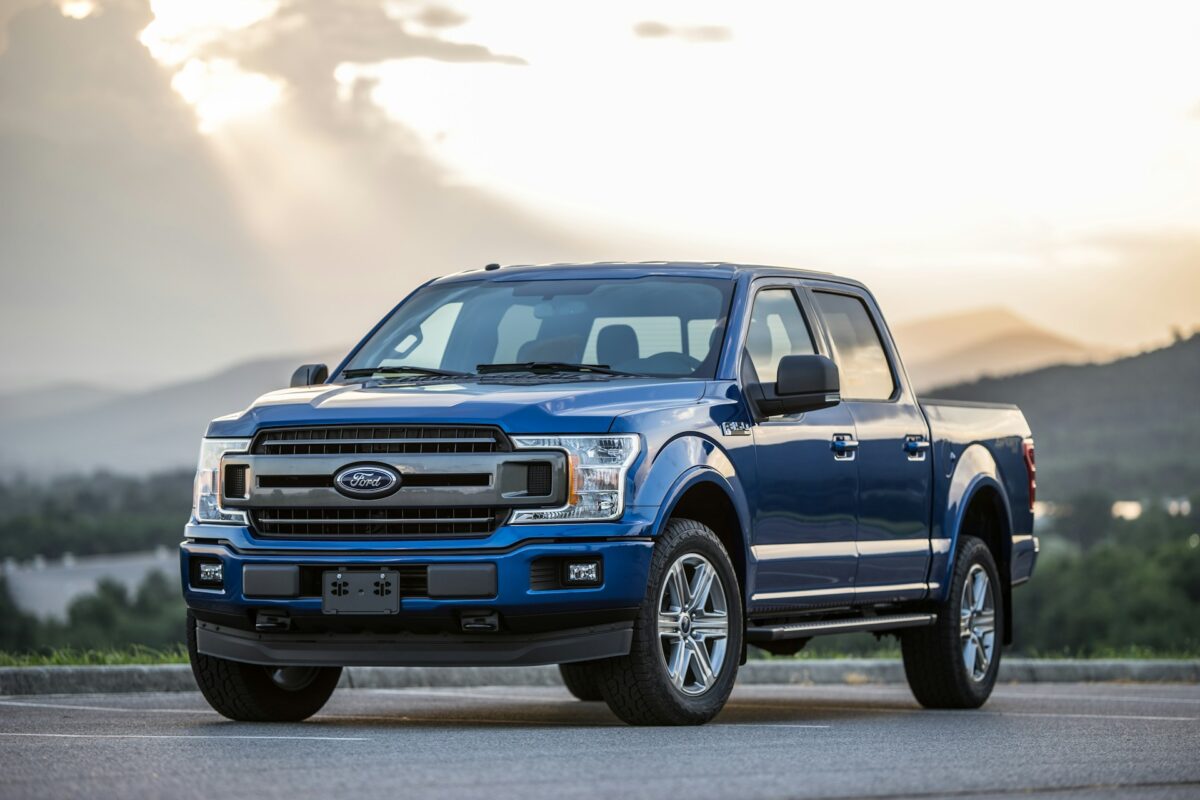In a significant move, automotive giant Ford has issued a sweeping recall affecting over 450,000 of its compact SUVs and pickup trucks. The recall, which spans the 2022-2024 model years, is in response to a concerning electrical issue that can potentially lead to a loss of drive power in affected vehicles. This development underscores the automaker’s commitment to prioritizing customer safety and satisfaction, even as it grapples with the logistical challenges of addressing a widespread product concern.
Vehicles Impacted by the Ford Recall
The Ford recall encompasses two of the company’s popular models – the Bronco Sport SUV and the Maverick compact pickup truck. Specifically, the affected vehicles were manufactured between the years 2022 and 2024, with the National Highway Traffic Safety Administration (NHTSA) estimating that a total of 456,565 units are involved in this recall.
The Bronco Sport, Ford’s rugged and versatile SUV, has been a standout performer in the automaker’s lineup. However, a significant number of these vehicles from the 2022-2024 model years are now subject to the recall due to the identified electrical issue.
Joining the Bronco Sport in this recall is the Maverick, Ford’s compact pickup truck that has gained popularity in recent years. Like its SUV counterpart, Maverick models from the 2022-2023 model years are affected by the electrical problem that prompted this large-scale recall.
The Underlying Electrical Issue
At the heart of this recall is an undetected low battery charge in the affected vehicles, which can have far-reaching consequences. This electrical anomaly can impair the proper functioning of various vehicle accessories, including the hazard lights and turn signals. More critically, it can also lead to a complete loss of drive power, posing a significant safety risk to both the driver and other road users.
The inability to operate essential features like hazard lights and turn signals can compromise the vehicle’s visibility and communication with other drivers, increasing the likelihood of accidents. Moreover, the potential loss of drive power can leave drivers stranded, unable to maintain control of their vehicles and navigate safely.
In response to this issue, Ford has taken proactive steps to address the problem and ensure the safety of its customers. The automaker has committed to recalibrating the body control and powertrain control modules in the affected vehicles, effectively resolving the underlying electrical fault. This repair will be provided to customers free of charge, demonstrating Ford’s dedication to customer satisfaction and responsible product stewardship.
Ford’s Recent Recall History
The Bronco Sport and Maverick recall is not the only instance of Ford issuing a recall in recent times. In fact, the automaker has been quite active in addressing various product-related concerns across its lineup.
Just recently, Ford announced a recall for certain 2022-2023 Bronco Sport and 2022 Escape models equipped with 1.5-liter engines. This recall was prompted by a potential issue with cracked fuel injectors, which could lead to fuel leaks and increase the risk of engine fires.
These consecutive recalls underscore Ford’s commitment to proactively addressing potential safety and reliability issues within its vehicle fleet. By swiftly identifying and addressing these concerns, the automaker aims to maintain the trust of its customers and uphold its reputation for producing high-quality, dependable vehicles.
Industry-Wide Recall Trends
The Ford recall is not an isolated incident, as the automotive industry has witnessed a surge in recall activity in recent months. Several other major manufacturers have also issued recalls, highlighting the ongoing efforts to ensure the safety and reliability of vehicles on the road.
In March 2023, Hyundai and Kia recalled over 147,000 electric vehicles in the United States due to issues with the charging units, which could result in a loss of drive power.
Chrysler, a subsidiary of Stellantis, also issued a recall in March 2023 for approximately 286,000 vehicles due to concerns over the side airbag inflators, which could rupture and potentially harm occupants.
Subaru, another prominent automaker, recalled 118,000 vehicles in the U.S. in March 2023 due to a problem with the Occupant Detection System (ODS) sensors, which could prevent the airbags from deploying during a crash.
Kia, in a separate recall, addressed an issue with 427,000 Telluride models in the U.S. where the vehicles could potentially move while in the park position, posing a rollaway risk.
Implications for Consumers
The widespread nature of these recalls across the automotive industry underscores the importance for consumers to stay informed and proactive when it comes to vehicle safety and maintenance.
Consumers affected by the Ford recall, as well as those impacted by other manufacturers’ recalls, are urged to heed the recall notices and promptly schedule appointments with authorized dealerships to have the necessary repairs or software updates carried out. Ignoring these recalls can expose drivers and their passengers to significant safety risks.
The responsiveness and transparency demonstrated by automakers in addressing these safety concerns can go a long way in maintaining consumer trust and confidence in the industry. Proactive recalls and effective communication with customers are crucial in upholding the reputation of automotive brands and ensuring the continued safety and satisfaction of vehicle owners.
The Road Ahead for Ford and the Industry
As the automotive industry navigates these challenges, the focus on safety and reliability will likely remain a top priority. Automakers like Ford will need to continue their diligent efforts to identify and address potential issues, while also exploring ways to enhance the overall quality and performance of their vehicles.
The integration of advanced safety technologies, such as improved electrical systems and more robust diagnostic capabilities, could play a crucial role in mitigating the risk of future recalls. Automakers must stay at the forefront of innovation to deliver vehicles that not only meet but exceed customer expectations for safety and reliability.
Beyond the technical aspects, automakers will also need to focus on strengthening their relationships with customers. Transparent communication, responsive customer service, and a commitment to addressing concerns in a timely and effective manner will be essential in maintaining the trust and loyalty of vehicle owners.




Leave a Comment